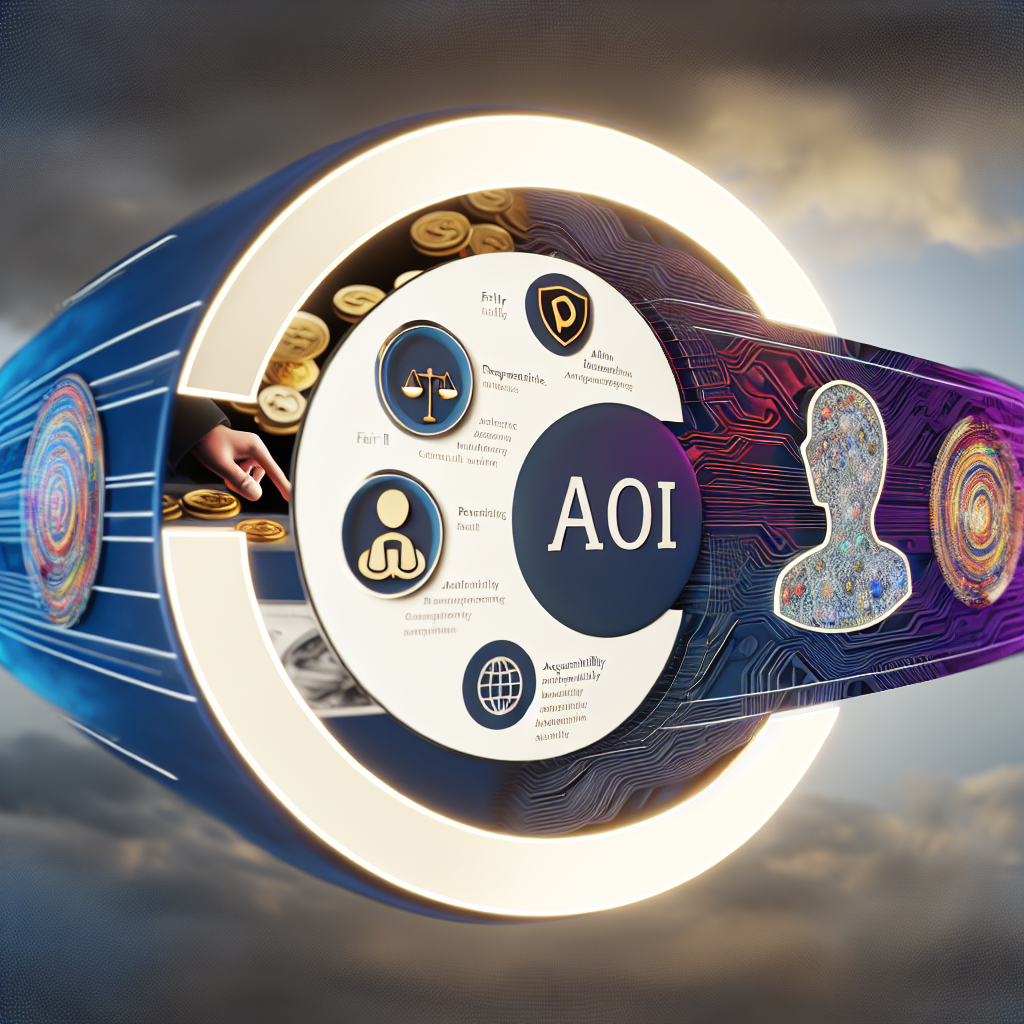Ethical AI Development: DoD AI Principles and Implementation Strategies
Estimated reading time: 10 minutes
Key Takeaways
- Understanding the importance of AI ethics in guiding responsible development and deployment of AI systems.
- Familiarization with the Department of Defense’s (DoD) AI ethical principles and how they provide a comprehensive framework for AI development.
- Strategies for embedding ethics throughout the AI model lifecycle, from data collection to maintenance.
- Identifying challenges in implementing AI ethics and how to address them.
- Exploring real-world applications and success stories of the DoD’s commitment to ethical AI.
Table of Contents
- Ethical AI Development: DoD AI Principles and Implementation Strategies
- Understanding AI Ethics: A Foundation for Responsible Development
- DoD AI Ethical Principles: A Comprehensive Framework
- Embedding Ethics in the AI Model Lifecycle
- Challenges in Implementing AI Ethics
- Real-World Applications and Success Stories
- Future Outlook: Ethics in AI Development
- Conclusion
- Take Action
In today’s rapidly evolving technological landscape, AI ethics has emerged as a critical framework guiding the responsible development and deployment of artificial intelligence systems. As AI increasingly influences decision-making across sectors, particularly in defense, understanding and implementing ethical principles becomes paramount for ensuring these powerful tools serve society’s best interests while minimizing potential harm.
This comprehensive guide explores the Department of Defense’s (DoD) approach to AI ethics, breaking down their established principles and providing practical strategies for embedding ethics throughout the AI model lifecycle.
Understanding AI Ethics: A Foundation for Responsible Development
AI ethics encompasses the principles and practices ensuring AI systems align with fundamental human values, justice, and accountability. This framework serves as a crucial guardrail for technological advancement, preventing unintended consequences and maintaining public trust in AI systems.
Key components of AI ethics include:
- Fairness: Preventing discriminatory outcomes and algorithmic bias
- Accountability: Establishing clear lines of responsibility for AI decisions Authority to Operate
- Transparency: Ensuring AI processes are explainable and understandable
- Privacy: Protecting individual and collective data rights
- Reliability & Safety: Guaranteeing consistent and safe operation, especially in critical applications
Source: https://www.ai.mil/Initiatives/Responsible-AI/
DoD AI Ethical Principles: A Comprehensive Framework
The Department of Defense’s 2020 adoption of AI ethical principles marked a historic milestone, establishing the first formal military commitment to ethical AI development. The DoD’s Chief Digital and AI Office (CDAO) oversees these principles:
- Responsibility
- Human accountability throughout AI development and deployment
- Clear oversight mechanisms and intervention protocols
- Regular assessment of ethical compliance
- Equity
- Active bias mitigation in algorithms
- Promotion of fair outcomes across diverse populations
- Regular testing for discriminatory impacts
- Traceability
- Transparent decision-making processes
- Comprehensive documentation requirements
- Auditable AI development pathways
- Reliability
- Rigorous testing protocols
- Consistent performance monitoring
- Regular safety assessments
- Governance
- Clear operational boundaries AI Governance Framework
- Mechanisms for system deactivation
- Structured oversight frameworks
Source: https://govciomedia.com/defense-department-officially-adopts-ai-ethics-principles/
Embedding Ethics in the AI Model Lifecycle
Successfully implementing ethical AI requires systematic integration throughout the entire development process. Here’s how organizations can embed ethics at each stage:
Data Collection Phase
- Ensure diverse, representative datasets
- Implement robust privacy protections
- Document data sources and consent procedures
Data Preprocessing
- Systematic bias identification and mitigation
- Quality assurance protocols
- Transparent documentation of preprocessing steps
Model Training
- Implementation of fairness algorithms
- Regular ethical compliance checks
- Comprehensive documentation of training procedures
Evaluation
- Rigorous fairness assessments
- Impact analysis on different populations
- Security and privacy testing
Deployment
- Continuous monitoring systems
- Regular ethical audits
- Stakeholder feedback mechanisms
Maintenance
- Regular updates addressing emerging biases
- Compliance with evolving ethical standards
- Ongoing performance monitoring
Source: https://fedtechmagazine.com/article/2025/04/dod-responsible-ai-rai-toolkit-perfcon
Challenges in Implementing AI Ethics
Organizations face several key challenges when implementing ethical AI practices:
Technical Challenges
- Balancing performance with ethical requirements
- Detecting subtle biases in complex systems
- Implementing effective monitoring tools
Organizational Challenges
- Aligning diverse stakeholder interests
- Maintaining consistent ethical standards
- Providing adequate ethical training
Regulatory Compliance
- Navigating evolving legal frameworks
- Meeting international standards
- Ensuring consistent documentation
Source: https://www.govconwire.com/article/a-look-into-the-dods-evolving-responsible-ai-strategy/
Real-World Applications and Success Stories
The DoD’s commitment to ethical AI has produced notable successes:
- Implementation of the Responsible AI Toolkit
- Establishment of comprehensive training programs
- Development of standardized assessment frameworks
These initiatives have improved:
- Project transparency
- Stakeholder trust
- Audit efficiency
- Risk management
Source: https://www.ai.mil/Initiatives/Responsible-AI/
Future Outlook: Ethics in AI Development
The future of AI ethics promises continued evolution:
Emerging Trends
- Advanced fairness algorithms
- Improved explainability tools
- Enhanced monitoring capabilities
International Collaboration
- Global ethical standards development
- Cross-border cooperation frameworks
- Shared best practices
Innovation Focus
- New ethical assessment tools
- Enhanced compliance frameworks
- Improved stakeholder engagement methods
Source: https://fedtechmagazine.com/article/2025/04/dod-responsible-ai-rai-toolkit-perfcon
Conclusion
The successful integration of ethics in AI development requires ongoing commitment, robust frameworks, and practical implementation strategies. The DoD’s ethical principles provide a strong foundation for organizations seeking to develop responsible AI systems. By following these guidelines and maintaining vigilant oversight, organizations can ensure their AI initiatives serve their intended purpose while upholding fundamental ethical values.
Take Action
To begin implementing ethical AI practices:
- Review and understand the DoD’s ethical principles
- Utilize available tools and frameworks
- Establish clear ethical guidelines for your organization
- Maintain ongoing ethical training and assessment
- Engage with the broader AI ethics community
Start your journey toward ethical AI development today by exploring the DoD’s resources and implementing these principles in your AI initiatives.

